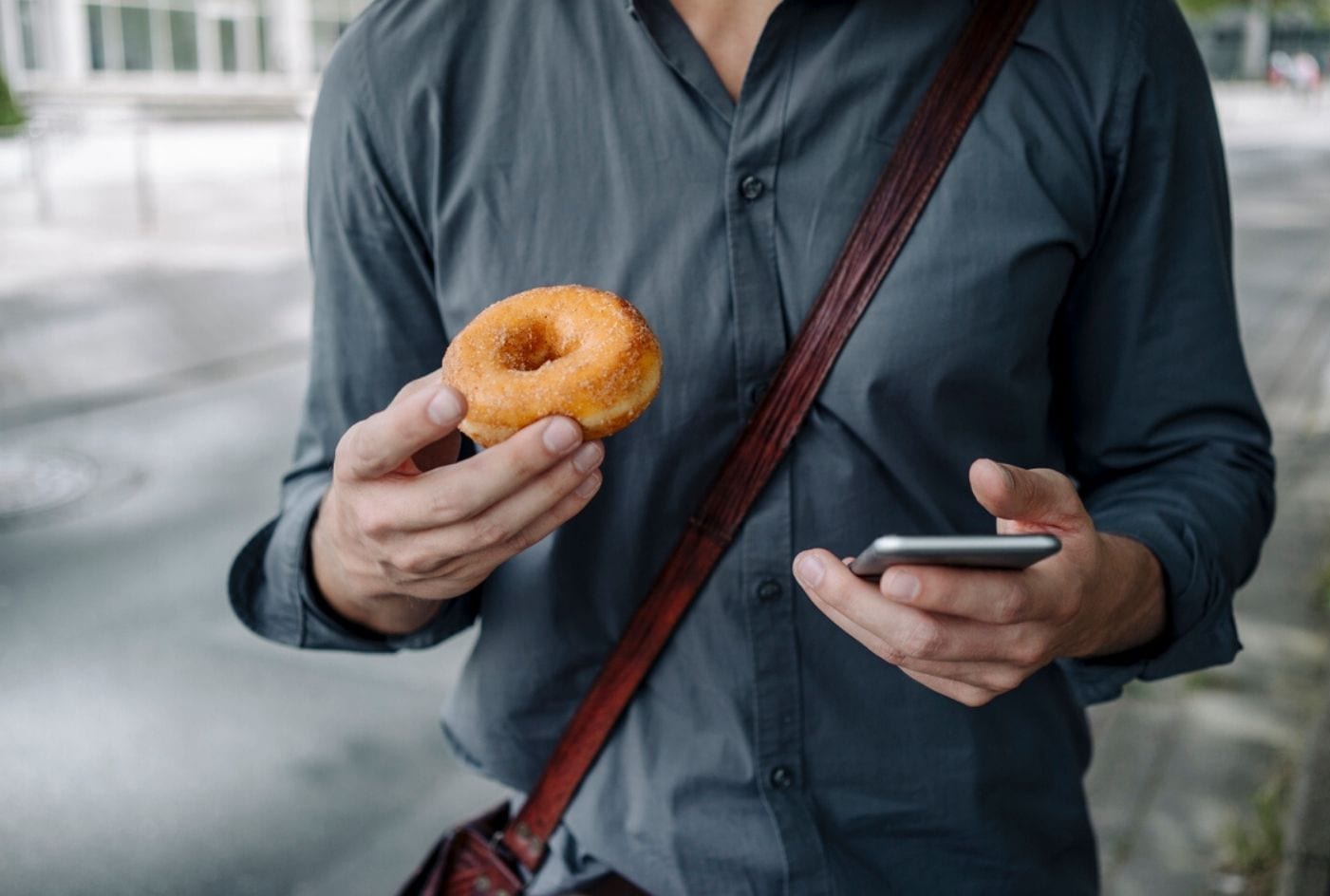
Self-control can typically really feel prefer it’s all or nothing, particularly whenever you’re making an attempt to stay with a strict consuming plan to drop pounds. The second you veer off beam with one indulgence, it’s straightforward to really feel such as you’ve failed, which makes it that a lot simpler to throw within the towel. However, in actuality, you haven’t failed, and it’s not all or nothing.
“Our typical understanding of self-control will be problematic in that it’s typically seen because the must be in complete management,” says Paul Davidson, PhD, a behavioral psychologist at Brigham and Girls’s Hospital in Boston. “This units up a vicious cycle of feeling such as you’re both in management or uncontrolled, and with the numerous temptations and stressors we face in a given day, it’s straightforward to really feel management slip away.”
Nevertheless, it seems self-control doesn’t really work like that. What’s extra, shifting your mindset can assist you are taking again management and have your chocolate cake, too.
THE SCIENCE BEHIND THE SELF-CONTROL MYTH
On the subject of wholesome consuming, self-control is all-too-often introduced as the flexibility to say no to typically unhealthy, feel-good meals excessive in sugar and fats. This units you up for a trade-off nobody can follow 24/7: Both eat ‘good-for-your-health’ meals and keep self-control or eat ‘dangerous meals’ for pleasure and lose management.
The issue with this definition of self-control is you don’t should sacrifice feel-good meals to be able to have management, argue the researchers within the Journal of Shopper Psychology. In accordance with their definition, you lose self-control when what you’ve finished hurts progress towards your long-term weight-loss targets and also you remorse it.
On this sense, when you perceive treating your self to some chocolate is inside your day by day calorie targets and retains you from feeling disadvantaged or overeating, it’s in the end a wholesome, supportive alternative — not a lack of management.
“A little bit cake at occasions makes it simpler to have carrot sticks more often than not,” says Davidson. Recognizing you can have smaller quantities of a less-healthy meals as a deal with is cheap — and doing so can assist you follow an consuming plan that’s wholesome and balanced general, he says.
Moderately than viewing self-control as one thing you both have or don’t, consider it as an ongoing choice course of the place your aim is to have the advantages of a option to outweigh the cons, suggests Davidson.
HOW TO TAKE BACK YOUR SENSE OF SELF-CONTROL
1. DITCH THE GOOD/BAD LANGUAGE
Any good dietitian will let you know there’s no such factor as ‘good’ or ‘dangerous’ meals. “If you see meals as ‘good’ or ‘dangerous,’ you can begin to view your self as ‘dangerous’ and ‘uncontrolled’ each time you attain for a less-than-healthy meals,” says Davidson. Make this change: Consider meals as both ‘much less wholesome’ or ‘more healthy’ (doughnut = much less wholesome, greens = more healthy). And know that it’s OK to incorporate each meals sorts in a nutritious diet. This manner, when you could have a less-healthy meal once in a while, you’re OK with it.
2. SCHEDULE TREATS
If you realize you can by no means hand over ice cream for good, don’t. Making the choice to get pleasure from ice cream is far more sustainable than making an attempt to chop it out endlessly (after which consuming the entire pint whenever you invariably ‘lose management’).
Basically, moderately than making an attempt to keep away from less-healthy meals, intention to progressively shift your consuming plan to incorporate a majority of wholesome meals, says Davidson. In case your food plan’s full of wholesome meals you’re keen on, you won’t wind up craving the treats as a lot (however when you do, no biggie).
3. TRACK YOUR PROGRESS
Maintaining a meals diary with an app like MyFitnessPal can present you simply how a lot management you could have in relation to sticking together with your calorie restrict, choosing wholesome portion sizes and progressively working towards your weight-loss targets (even and particularly whenever you really feel such as you’ve fallen off the wagon). It’s research-backed, too: Monitoring your efforts and outcomes is linked with weight-loss success, notes Davidson.
4. KNOW THE DIFFERENCE BETWEEN LAPSES AND RELAPSES
There’s a giant distinction between a lapse (a brief choice that may not finest serve your weight-loss targets) and a relapse (an entire return to problematic consuming habits), says Davidson. If you happen to go over your calorie targets one night time out with associates, that’s regular. Lapses are to be anticipated and don’t imply you’ve misplaced all self-control. If you happen to really feel like you’ll be able to’t get your self again on observe, attain out to a health care provider or registered dietitian for additional assist, suggests Davidson.

















